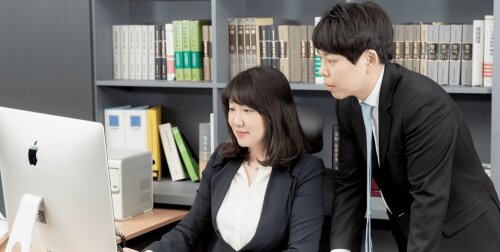Best Trusts Lawyers in Seoul
Share your needs with us, get contacted by law firms.
Free. Takes 2 min.
List of the best lawyers in Seoul, South Korea
About Trusts Law in Seoul, South Korea:
Trusts in Seoul, South Korea are legal arrangements where one party (the settlor) transfers assets to another party (the trustee) for the benefit of a third party (the beneficiary). Trusts are governed by the Trust Law and related regulations in South Korea and are commonly used for estate planning, asset protection, and tax planning purposes.
Why You May Need a Lawyer:
You may need a lawyer for trusts in Seoul, South Korea if you are creating a trust, amending an existing trust, resolving disputes related to a trust, or navigating complex legal issues surrounding trusts. A lawyer can provide guidance on the legal requirements, draft necessary documents, and represent you in court if needed.
Local Laws Overview:
In Seoul, South Korea, trusts are governed by the Trust Law, which outlines the legal requirements for creating and managing trusts. Key aspects of local laws related to trusts include the duties of trustees, rights of beneficiaries, taxation of trusts, and enforcement of trust agreements.
Frequently Asked Questions:
1. What is a trust?
A trust is a legal arrangement where one party (settlor) transfers assets to another party (trustee) for the benefit of a third party (beneficiary).
2. How do I create a trust in Seoul, South Korea?
To create a trust in Seoul, South Korea, you must execute a trust deed outlining the terms of the trust and transfer assets to the trustee.
3. What are the duties of a trustee in Seoul, South Korea?
Trustees in Seoul, South Korea have a fiduciary duty to manage the trust assets prudently, act in the best interests of the beneficiaries, and follow the terms of the trust deed.
4. How are trusts taxed in Seoul, South Korea?
Trusts in Seoul, South Korea are subject to income tax on any income generated by the trust assets. The tax rate may vary depending on the type of trust and the nature of the income.
5. Can I amend a trust in Seoul, South Korea?
Yes, you can typically amend a trust in Seoul, South Korea by executing a trust amendment document that outlines the changes to the trust terms.
6. What happens if there is a dispute over a trust in Seoul, South Korea?
If there is a dispute over a trust in Seoul, South Korea, the parties involved can seek resolution through negotiation, mediation, or litigation in court.
7. Who can be a beneficiary of a trust in Seoul, South Korea?
Any individual, organization, or entity can be named as a beneficiary of a trust in Seoul, South Korea.
8. How long does a trust last in Seoul, South Korea?
The duration of a trust in Seoul, South Korea can vary depending on the terms outlined in the trust deed. Some trusts may be set up to exist for a specific period, while others may be ongoing.
9. Are trusts commonly used for estate planning in Seoul, South Korea?
Yes, trusts are commonly used for estate planning in Seoul, South Korea to protect assets, avoid probate, and provide for beneficiaries after the settlor's death.
10. Do I need a lawyer to create a trust in Seoul, South Korea?
While it is not required by law to have a lawyer create a trust in Seoul, South Korea, consulting with a legal professional can help ensure that the trust is properly structured and complies with all legal requirements.
Additional Resources:
For additional information on trusts in Seoul, South Korea, you may consider contacting the Korea Trust Association or the Korea Financial Supervisory Service for guidance and resources related to trusts.
Next Steps:
If you require legal assistance in trusts in Seoul, South Korea, it is recommended to consult with a trusted law firm that specializes in trusts and estate planning. A lawyer can provide personalized advice based on your specific circumstances and help you navigate the legal complexities of trusts in Seoul, South Korea.
Lawzana helps you find the best lawyers and law firms in Seoul through a curated and pre-screened list of qualified legal professionals. Our platform offers rankings and detailed profiles of attorneys and law firms, allowing you to compare based on practice areas, including Trusts, experience, and client feedback.
Each profile includes a description of the firm's areas of practice, client reviews, team members and partners, year of establishment, spoken languages, office locations, contact information, social media presence, and any published articles or resources. Most firms on our platform speak English and are experienced in both local and international legal matters.
Get a quote from top-rated law firms in Seoul, South Korea — quickly, securely, and without unnecessary hassle.
Disclaimer:
The information provided on this page is for general informational purposes only and does not constitute legal advice. While we strive to ensure the accuracy and relevance of the content, legal information may change over time, and interpretations of the law can vary. You should always consult with a qualified legal professional for advice specific to your situation.
We disclaim all liability for actions taken or not taken based on the content of this page. If you believe any information is incorrect or outdated, please contact us, and we will review and update it where appropriate.












